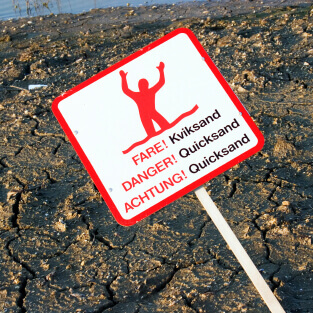Real Estate Investor: Avoid these 4 danger zones in your business

Real estate investing may be rewarding, enriching and empowering, but for a new real estate investor, it’s not without its dangers.
Being a successful real estate investor means having a real plan, making savvy choices on homes to buy and choosing the right places to put your money. But it also means avoiding the traps, pitfalls and errors that could doom your business from the start.
Here are four danger zones to keep your radar focused on if you want to launch yourself as a successful real estate investor.
Real Estate Investor: Don’t Let Debt Swallow You Up
Having some leverage is the name of the game, but as a real estate investor you need to make sure you aren’t over-extending your business and your reserved. Putting all of your chips (and even some borrowed ones) on a decision that goes South can destroy a great future. Keep a reserve separate from your investment funds if you have. A real estate investor should also be planning for the unexpected.
Real Estate Investor: Don’t be ruled by Greed
Of course profit is going to drive a real estate investor, but too much greed can turn off potential partners, sellers and renters. Don’t become known as the greedy guy or gal
Real Estate Investor: Don’t panic!
If you are running your real estate investment business the right way, you will quickly learn that patience pays off. Don’t be in a rush to do anything, especially when it comes to buying property. As a real estate investor, panic buying can torpedo long-range plans and cost you peace of mind.
Real Estate Investor: Don’t let your personal life swamp you
If you are trying to balance your life as a real estate investor with moves, job changes and dramatic people in your inner circle, then something is going to have to give. Don’t be afraid to push pause on making other major life changes in order to pursue your real estate investment goals. Also, don’t let the people who make have influence on these personal aspects of your life have too much influence on your business plans and business decisions – especially if they don’t have the knowledge and training that you do.
